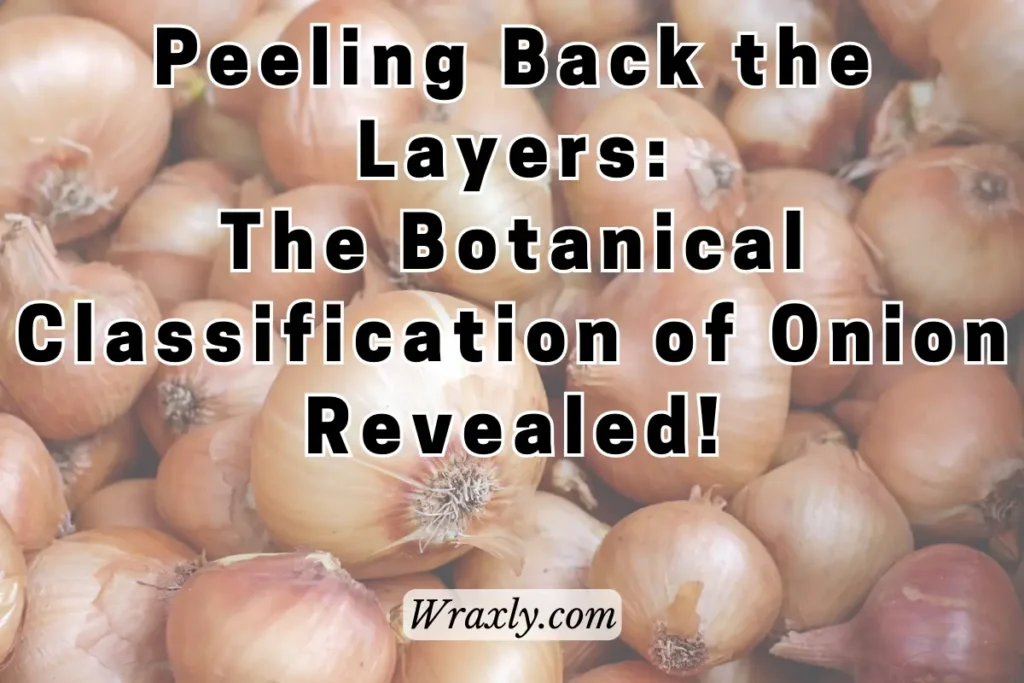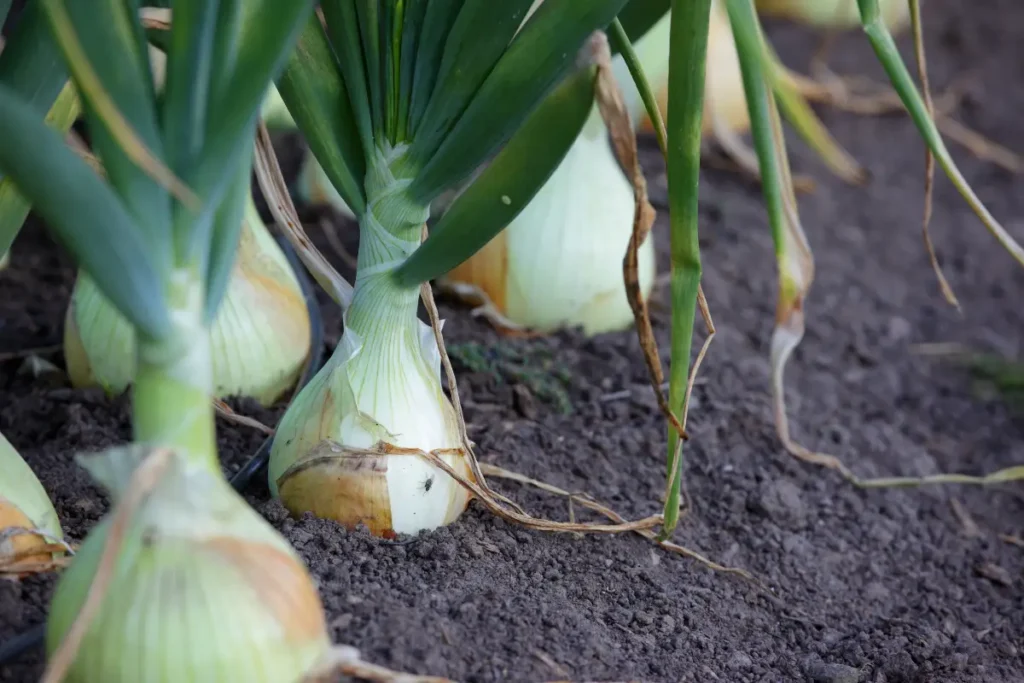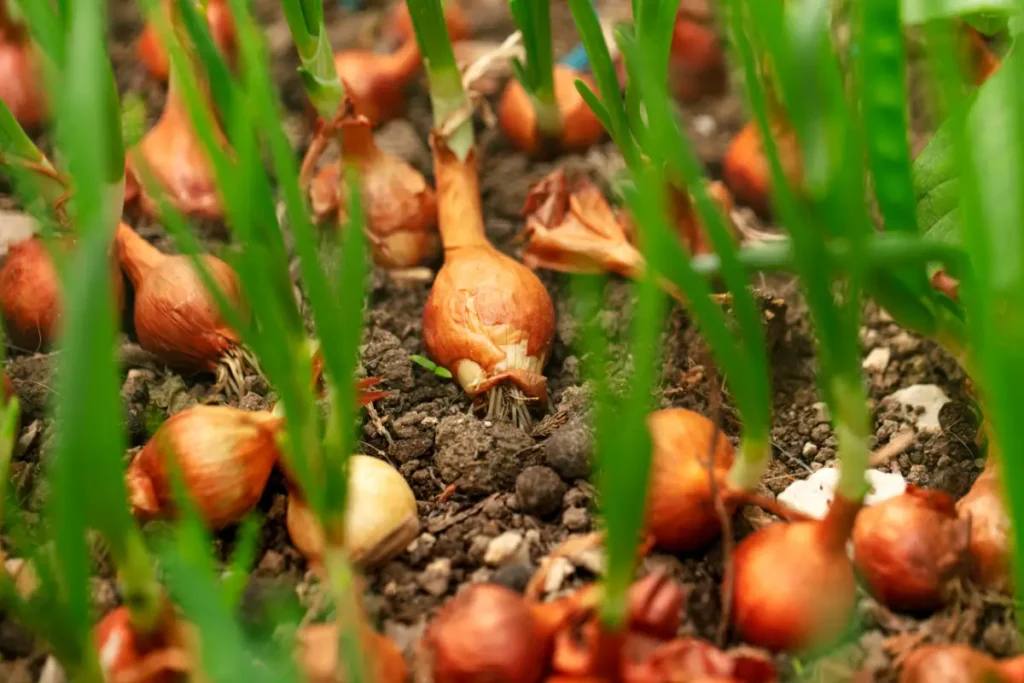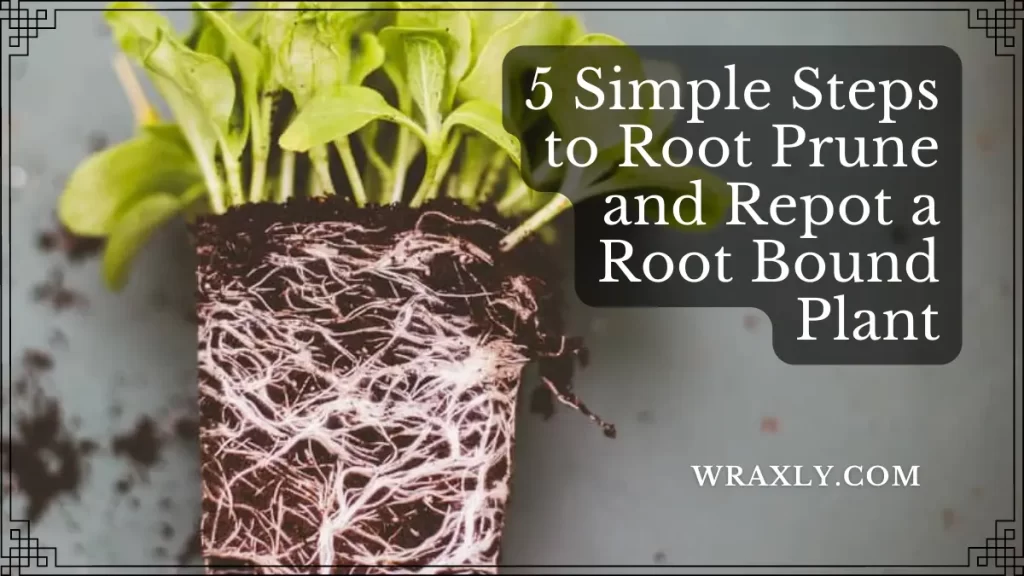Onions are a staple in kitchens worldwide, adding flavor and depth to various dishes. These humble vegetables have been a staple in our diets for centuries, but have you ever wondered whether they’re truly vegetables? Is onion a vegetable?
Why do some people mistake onions for fruits? Where do onion seeds come from? Are they root vegetables? And what makes onions healthy or potentially risky?
Let’s find out together!

Is Onion a Vegetablе?
Yes, onion is a vegetable. It belongs to the Allium family, including garlic, leeks, chives, scallions, and shallots. While we often associate vegetables with leafy greens or colorful produce, onions are unique.
They grow underground and contain layers, making them different from the more recognizable vegetable types like carrots.
Both onions and carrots have edible parts that grow underground, but what we consume differs. With carrots, the part we eat is the actual root, which is the long, orange portion that’s underground.
On the other hand, with onions, what we eat isn’t the root; it’s the bulb, which is formed from the stem and grows underground.
So, while they both grow below the ground, the edible parts are distinct.
Carrots are true root vegetables, as we eat their roots, while onions are bulbous stem vegetables because the edible part comes from the stem, not the root.
Onions are considered vegetables because we use them in cooking. Whether in salads, soups, or other dishes, they’re important to many recipes.

Why Do People Mistake Onions As Fruits?
People sometimes get confused about onions because of their taste. Some onions, like the Vidalia or Walla Walla sweet onions, can be surprisingly sweet, and sweetness is often linked to fruits. So, when onions taste sweet, it can make folks think they might be fruits.
Fruits are usually sweet and come from a plant’s flowering part. Onions, though, grow underground and don’t come from a plant’s flowers.
They have a more savory taste. So, the confusion happens because sweet onions can taste a bit like fruits, even though they’re technically vegetables.
It’s like a little trick that taste can play on our minds, but don’t worry, onions are vegetables, not fruits.
Where Do Onion Seeds Come From?
Onion seeds come from the plant’s flowering head, called a “scape.” This part grows on top of the onion plant, reaching up into the air. When the onion plant blossoms, it forms tiny, black seeds in clusters. These seeds are like little packages of potential.
They carry the instructions to grow new onions when they’re planted.
Some onions, especially the sweet varieties, can’t make good seeds for growing new plants. So, in those situations, people use a different way to make new onion plants. They take a big onion and carefully divide it into smaller pieces.
These smaller pieces can then be planted to grow new onion plants. It’s like making copies of the original onion plant, so you have more onions to grow and eat.
Recommended Onion Seeds
Are Onions Root Vegetables?
No, onions aren’t considered root vegetables, and this might seem a little puzzling because they do grow underground. To clarify, root vegetables are plants that store their nutrients and energy in their roots. These include well-known vegetables like carrots and potatoes. However, onions do things a bit differently.
Onions are special because the part we eat isn’t the root; it’s actually a part of the stem that grows beneath the soil.
When we slice open an onion, we can see all the layers inside, and those layers are the edible parts. In contrast, root vegetables store their nutrients in the part below the soil’s surface, such as a carrot’s orange root.
So, even though onions share the characteristic of growing underground with root vegetables, they’re technically bulbous stem vegetables because the part we eat comes from the stem, not the root.
Is Onion a Healthy Vegetable?
Onions aren’t only delicious but also quite healthy. They’re low in calories and packed with essential nutrients. Here’s a list of key health benefits associated with onions:

1. Rich in Antioxidants
Onions contain antioxidants, such as quercetin, which may help protect cells from damage caused by free radicals.
2. Heart Health
Onions have been linked to a reduced risk of heart disease by helping to lower blood pressure and improve cholesterol levels.
3. Digestive Health
Onions are a good source of dietary fiber, which can help keep your digestive system running smoothly. Fiber aids in regular bowel movements and can prevent constipation.
4. Cancer Prevention
Certain compounds in onions may have cancer-fighting properties, though more research is needed.
5. Immune Support
Onions contain vitamin C, which is known for its role in supporting the immune system. Including onions in your diet can help your body fend off illnesses and stay healthier.
6. Bone Health
Onions also provide small amounts of calcium, a mineral essential for strong bones. While they aren’t a primary source of calcium, every bit helps maintain bone health.
7. Anti-Inflammatory Properties
Some compounds in onions have been linked to reducing inflammation in the body. Chronic inflammation is associated with various health problems, so adding onions to your diet may help combat this issue.
8. Antibacterial Effects
Onions contain natural antibacterial properties that can help in fighting harmful bacteria in the body. This can contribute to overall health and well-being.
9. Healthy Skin
The vitamins and antioxidants in onions can also benefit your skin. They may help keep your skin looking healthy and vibrant.
10. Natural Detoxification
Onions contain sulfur compounds that support the body’s natural detoxification processes. This helps the body eliminate harmful substances and stay clean and healthy.

Including onions in your diet can provide these additional benefits, making them an even more valuable addition to your meals.
Risks Associated with Onions
While onions offer many health benefits, there are some potential risks to consider. For some individuals, consuming raw onions can lead to digestive discomfort, such as gas and bloating.
Additionally, a few people may be allergic to onions and experience symptoms like itching, swelling, or breathing difficulties when they come into contact with them.
Related Questions
Why Does Chopping Onions Cause Tears?
When you chop or slice an onion, it releases a volatile compound called syn-propanethial-S-oxide. This compound can irritate the eyes and stimulate tear production. To reduce the tears, you can try chilling the onion before cutting it, using a sharp knife, or cutting it under running water to minimize the release of this irritating gas.
Is an Onion a Vegetable or a Root?
An onion is a vegetable, so it’s not a root. When we think of root vegetables, examples like carrots or potatoes come to mind. Onions, however, are a bit unique. They’re considered bulbous stem vegetables because we eat the part that grows underground, which is the bulb.
So, while they share some similarities with root vegetables regarding where we find them in the ground, they’re technically a different kind of vegetable.
Is an Onion a Fruit Yes or No?
Onion isn’t a fruit; it’s a vegetable. This can be a bit confusing because some onions, especially the sweet varieties like Vidalia or Walla Walla, can have a somewhat sweet taste. But what sets fruits apart is that they’re often sweet and come from the flowering part of a plant.
Onions grow underground, and their flavor is savory, making them vegetables.
Is Onion a Vegetable or Salad?
Onions are indeed vegetables. However, they’re often used in salads. Their crisp texture and unique flavor can add a refreshing and zesty element to salads. So, even though they’re vegetables, they frequently appear in various salads to enhance taste and crunch.
Is Onion and Tomato a Vegetable?
Tomatoes are technically fruits because they develop from the flowering part of the plant and contain seeds. However, in culinary terms, they’re often treated as vegetables due to their savory flavor. They’re used in various savory dishes and salads, which can lead to some confusion.
Onions are vegetables, so when we think about the tomato-onion duo in cooking, one is a fruit (tomato), and the other is a vegetable (onion).
Is Onion a Vegetable or an Herb?
Onions are unequivocally vegetables, not herbs. Herbs are typically plants, like basil or oregano, used for flavoring or garnishing dishes. Onions are a fundamental ingredient in cooking and often serve as the base for various dishes, contributing to their flavor. So, they belong to the vegetable category and not the herb category.
For Further Reading
- How to Grow Onions in a Grow Bag
- Onion Growing Stages: The Basics for Beginners
- The Secret to a Pest-Free Garden: Plant These With Your Tomatoes!
So, is Onion a Vegetable?
Onions may be small, but they’re a fascinating and versatile addition to our culinary world. While they’re not root vegetables and may sometimes be mistaken for fruits, they bring a unique blend of flavors and health benefits to our plates.
Whether you enjoy them for their mild sweetness or savory depth, the next time you encounter an onion, you can appreciate the layers of complexity behind this common yet extraordinary vegetable.
So, go ahead and add more onions to your meals – just keep a tissue handy when you start chopping!

Darrell has a passion for gardening that he inherited from his father. Go here to read more about the influence his father played in his love for gardening. If you want to send Darrell a quick message, then visit his contact page here.

![How to Water Indoor Plants [Plant Care 101]](https://wraxly.com/wp-content/uploads/2021/03/How-to-Water-Indoor-Plants-Plant-Care-101-1200-1024x576.webp)

![Growing Plants from Cuttings [A Simple Guide]](https://wraxly.com/wp-content/uploads/2021/03/Growing-Plants-from-Cuttings-A-Simple-Guide-1200-1024x576.webp)